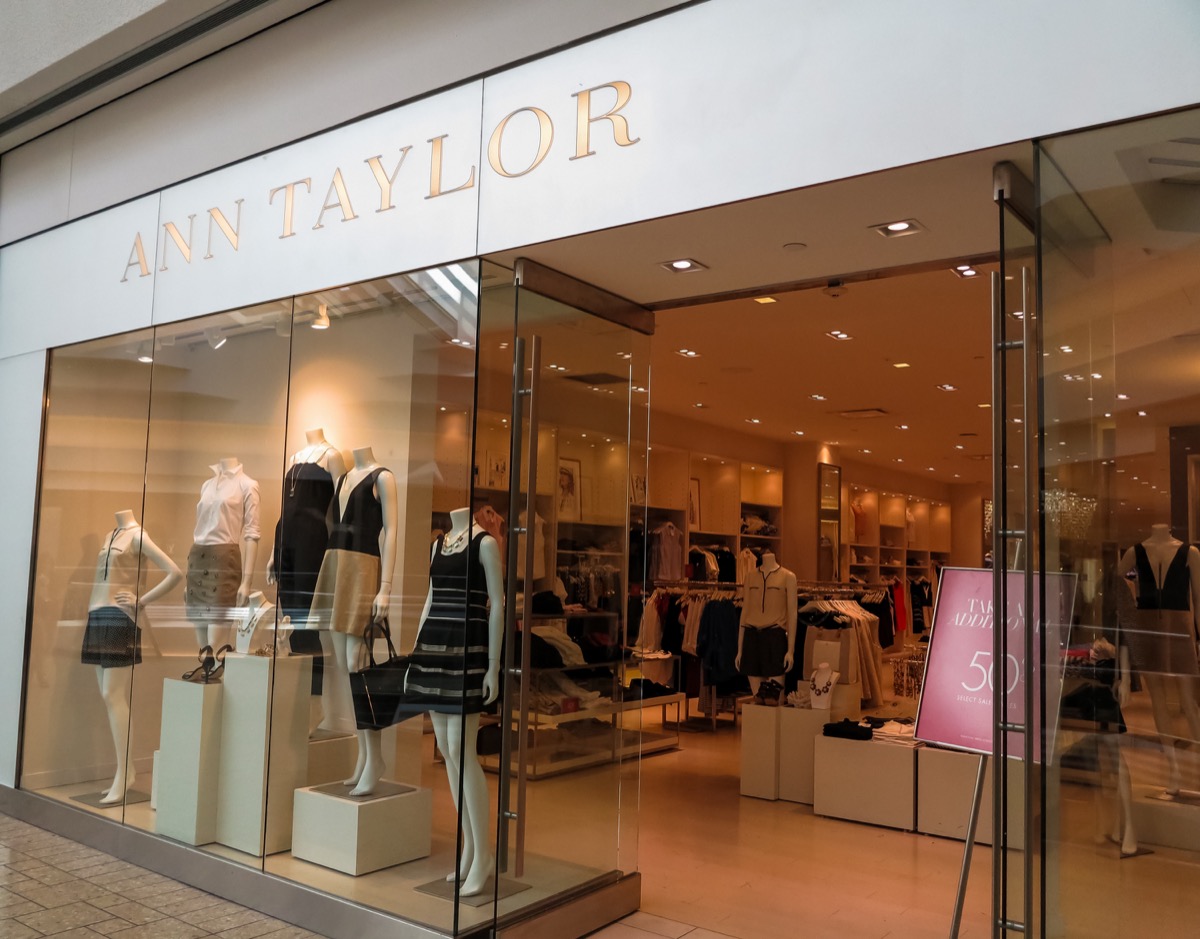Major names in retail, the shops that really used to rule the roost, are become permanent casualties of the retail apocalypse. While they might not be completely out of business just yet, there may be no righting the ship with such low-sinking sales. These 10 strip mall stores have shuttered hundreds (in some cases, thousands) of locations as they struggle to survive—meaning this may be your last chance to visit these stores ever again. Five years ago, Dollar Tree announced the $8.5 billion acquisition of Family Dollar. But in March, Dollar Tree shared that it would be shuttering 390 Family Dollar stores. According to Vox, this comes as Walmart increasingly experiments with “smaller-store concepts” to “aggressively squeeze out its dollar-store competitors.” The pandemic was undoubtedly little help in the matter. And for a low-cost business that’s booming, check out This Popular Discount Chain Is Launching a New Shopping Experience. Service-oriented shops in strip malls would seem to be the most resistant to financial fluctuation, but AT&T’s brick-and-mortar locations have struggled to stay afloat amid the pandemic. The wireless carrier is currently in the process of closing 250 stores and cutting 3,400 jobs, Communications Workers of America said in a statement. They cited “changing consumer behaviors” and the pandemic for its rapid decline. Signet Jewelers, the parent company of Kay, Zales, and Jared jewelers, as well as the strip mall staple Piercing Pagoda, will be closing 400 stores. The shutdowns are concentrated in underperforming locations across the country (as well as in the United Kingdom), a decision the company reached after temporarily closing all 3,000 of its stores in March as a result of the pandemic. Sales dropped 40 percent in the company’s last quarter, and they’ve shifted their strategy to increasing their online presence. According to Business Insider, Ann Taylor’s parent company Ascena Retail Group announced in July that they had filed for bankruptcy and intended to close over 1,100 retail locations. This will include not only Ann Taylor stores most commonly found in malls, but also Ann Taylor Factory, Ann Taylor LOFT, Lou & Grey, Lane Bryant, Dress Barn, and other sister companies more frequently found in smaller strip mall locations. And for another fashion brand that’s disappearing, check out This Popular Clothing Chain Just Announced It’s Closing 250 Stores. As reported by USA Today, Pier 1 Imports began the process of closing by announcing that it would shutter half its store locations in Jan. 2020. Just one month later, the chain announced that they were filing for Chapter 11 bankruptcy and would begin an “orderly wind down” of business, including the closing of 936 locations. Pier 1’s CEO Robert Riesbeck explained that the company had been looking for a buyer to rescue the beloved chain before the pandemic struck. “Unfortunately, the challenging retail environment has been significantly compounded by the profound impact of COVID-19, hindering our ability to secure such a buyer and requiring us to wind down,” Riesbeck said. And for another housewares brand in trouble, check out This Beloved Home Store Is Closing More Than Half of Its Locations. In July, Men’s Wearhouse announced that they would be closing up to 500 locations across the U.S., but it still came as a shock when they filed for bankruptcy just one month later. “The coronavirus pandemic has altered the way we live and work. There are fewer in-person meetings, less going out, and postponed wedding celebrations, whereas our clothes are better suited to being out and about. That, in turn, means the need for fewer stores,” parent company Tailored Brands explained on its website. Once a go-to destination for gamers, GameStop has certainly seen better days. In March they released a statement saying they’d be closing 350 store locations. Then, during an early September earnings call, the company stated that number would rise to between 400 and 450 locations, according to CNN. The company’s Chief Financial Officer, Jim Bell, acknowledged that there would likely be more major cuts in 2021—assuming the company survives that long. And for another entertainment company that’s disappearing, This Major Movie Theater Chain Just Announced It’s Closing All Locations. In July, women’s clothing retailer New York & Company announced its plans to “close a significant portion, if not all” brick-and-mortar locations. The company cited the financial blow of the coronavirus pandemic as its cause for closing, and has launched liquidation sales. Though not explicitly marketed as a liquidation sale, the store is currently offering up to 85 percent off all online merchandise. And for something to be wary of in cases like these, learn about The Secret Way Going-Out-of-Business Sales Are Trying to Trick You.ae0fcc31ae342fd3a1346ebb1f342fcb Another major retailer that could quickly become scarce? Bed Bath & Beyond. While they haven’t given up hope just yet, the beloved home goods retailer announced plans to close 63 locations by the end of 2020, on top of 40 locations they’ve already shuttered. Company higher-ups describe the plan not as a downsizing effort, but as a “store optimization plan” in service of “a seamless, omni-always customer experience.” While many are rooting for Bed Bath & Beyond, this could very well be the beginning of the end. GNC has sold nutritional supplements since 1935, but its business model was no match for 2020. With 1,200 locations across the country, it will now close 800 of those stores. The GNC website explains that the decision was the result of ongoing, years-long financial strain while trying to keep up with online competitors. “However, the COVID-19 pandemic created a situation where we were unable to accomplish our refinancing and the abrupt change in the operating environment had a dramatic negative impact on our business,” the company says. And for more up-to-date information on the retail apocalypse of 2020 and more, sign up for our daily newsletter.
